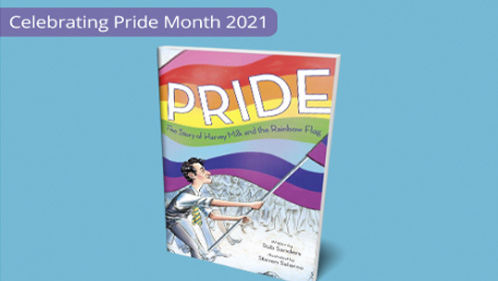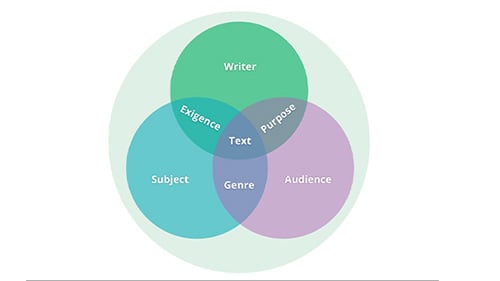Creative Earth Day Activities for Students
What the Earth signifies to me… We've covered that already. The Earth is suffering from pollution, and we must protect it! Been there, done that!...
AP & Honors Mathematics
Explore Wiley titles to support both AP and Honors mathematics instruction.
Literacy Skills & Intensive Reading
Connections: Reading – Grades 6–12
Empower student success with a proven intensive reading program that develops strong reading skills in striving readers.
Drama, Speech & Debate
Basic Drama Projects 10th Edition
Build students’ confidence and competence with comprehensive, project-based theatre instruction.
Literature
Connections: Literature
Support learners as they study dynamic, relevant texts and bring the richness of diverse voices to students through literature.
Literature & Thought
Develop critical thinking, reading, and writing across literacy themes, genres, historical eras, and current events.
Language Arts
Vocabu-Lit® – Grades 6–12
Help students build word power using high-quality contemporary and classic literature, nonfiction, essays, and more.
Connections: Writing & Language
Help students develop grammar, usage, mechanics, vocabulary, spelling, and writing and editing skills.
Reading/English Language Arts
Measuring Up to the English Language Arts Standards
Incorporate standards-driven teaching strategies to complement your ELA curriculum.
English Language Learners
Measuring Up for English Language Learners
Incorporate research-based best practices for ELLs with an approach that includes a focus on language acquisition strategies.
Mathematics
Measuring Up to the Mathematics Standards
Incorporate standards-driven teaching strategies to complement your mathematics curriculum.
Foundations
Measuring Up Foundations
Help students master foundational math skills that are critical for students to find academic success.
Science
Measuring Up to the Next Generation Science Standards
Give students comprehensive NGSS coverage while targeting instruction and providing rigorous standards practice.
Assessment
Measuring Up Live
Deliver innovative assessment and practice technology designed to offer data-driven instructional support.
For a better website experience, please confirm you are in:
.jpg?width=5616&height=3744&name=GettyImages-2170617021%20(1).jpg)
1. Sorting Game: Students take on the role of “AI classifiers.” Provide a mix of objects (shapes, animals, or vocabulary words) and ask students to sort them into groups using different “rules,” just like a machine learning model “classifies” data.
AI isn’t just about computer science. It strengthens learning across subjects:
Literacy: Encourage creative writing with prompts like “Describe a friendly robot” or “Invent a machine for the future.”
Mathematics: Use pattern recognition games or sorting tasks to reinforce foundational math concepts.
Science: Relate AI activity to larger scientific ideas, such as using data to predict weather patterns or sorting living things in an ecosystem.
Reflection or Journal Questions:
With unplugged activities, every elementary classroom can develop foundational digital literacy. Ready to get started? Download a free unplugged AI activity sheet, or share your own classroom experiments with our educator community. Together, we can make AI education accessible, developmentally appropriate, and fun for all learners

What the Earth signifies to me… We've covered that already. The Earth is suffering from pollution, and we must protect it! Been there, done that!...

One of the benefits and challenges of the AP® Language course is that the skills need to be understood both as a reader and a writer; and, often when...

We all know the rainbow flag stands for the LGBTQIA+ community and it stands for pride, but did you know that each color has a meaning? Or that...

Over the years I’ve come to realize that, like any other subject, Macroeconomics is best retained when connections are made. It is for this reason...

Period 7 in the AP U.S. History curriculum is one of the most extensive, spanning from 1890 to 1945. This era begins with debates over imperialism...

In this activity, students will read and reflect on the different types of writing they might encounter on the AP® Language & Composition Exam....

We are all constantly practicing the skill of character analysis. I remind my often insecure students of this fact before we dive into a difficult...

The beginning of the school year is an important time for establishing expectations and forming relationships, both teacher-student and...

Discover how simulations can enhance learning in AP® U.S. Government and Politics. Engage students with hands-on activities like discretionary...

I have become obsessed with trying to find activities in the AP® World History classroom that foster analysis. Having students understand what is...

Lesson Overview This assignment is designed to help students think critically about how we use rhetoric in everyday communication—specifically...

For many years, LOR—for most English teachers—stood for The Lord of the Rings. But now, LOR has come to stand for something seemingly even more...

.jpg)